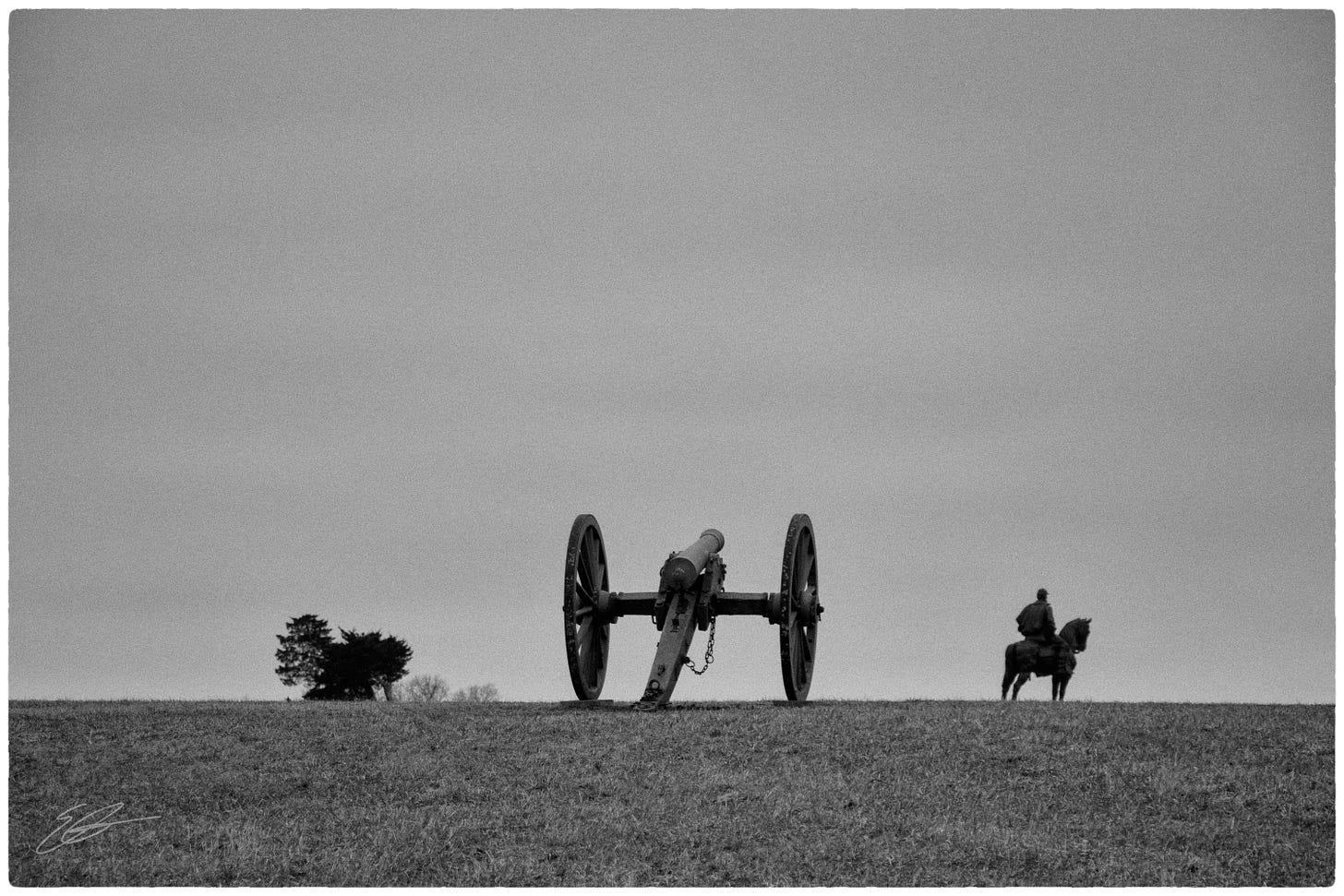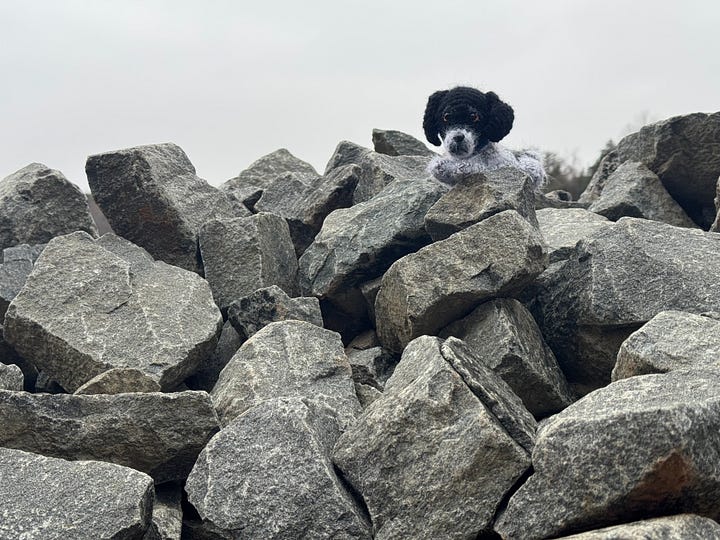Psalm 44 - The Stories We Tell Ourselves

“They were traitors!”
“They were patriots!”
“It is called the War Between the States”
“It is called the War of Northern Aggression”
“It is called the Civil War”
A story is different depending on where you are standing and from where you observe it. There’s a lot of different observations happening right now aren’t there? Goodness yes.
Psalm 44 is a unique Psalm of all of them thus far. It is a bit of a “story Psalm” where the writer (this one not attributed to David or anyone for that matter) shares about some of the nation’s history and their relationship with God. The writer is bold in some of her claims - You (God) have rejected and abased us...You have sold your people for a trifle... - and she continues by declaring their innocence and their faithfulness to their covenant with God. She moves to close with a bold call to God - “Rouse yourself! Why do you sleep, O Lord? Awake! Do not cast us off forever!”
It is a stirring, searing, and powerful Psalm. As I read it, though, I wondered about the story that the writer was telling herself and the stories that the people were telling themselves as a whole. Their story sounds like putting all the blame on God for what had come upon them. Is there anything that is “theirs” to own for where they have found themselves? Are they able and/or willing to see their full stories? Are they willing to be open to the ways that others may have experienced the same?
During one of my internships in seminary, my Clinical-Pastoral Education supervisor asked each of us to work on a family history that was called a genogram. It was a way of diagramming not only basic family relationships but also trying to get at the dynamics of those relaionships. In introducing it to us, Cindy shared that it was a useful tool for understanding our stories, including seeing some of the dysfunction in our families of origin.
Well, I felt like I didn’t need to explore that. My family of origin was perfect. We had some normal stuff that all families have (grouchy teenagers, etc) but my parents weren’t divorced, neither my sister or I got into any major “trouble”, we had a fairly comfortable life, there wasn’t anything that seemed like significantly traumatic, and the list goes on. Why did I need to do anything like this? There was no dysfunction in my family.
Ha...
So I chose to not do the assignment and when it came time for me to share what I had put together, I said that I didn’t do it and didn’t feel I needed to for all those reasons noted above. Cindy, my supervisor was neither impressed or convinced. So she said, “great - then it will be really easy for us to just do yours with the whole group.” So she pulled out her marker, went to the tablet on the stand and said, “tell me about your parents...” Some significant amount of time later, I had come to a realization that the story that I had told myself for those 25 or so years wasn’t the full story. My family had its own shares of dysfunction and that dysfunction affected who I was then (and still who I am today). But I also saw how my family was no different from any other - all of our stories are a mixture of all of it - beauty, dysfunction, blessings, and challenges.
My wife and I joked about haivng a therapy jar where we would put money in to pay for our kids’ therapiies because, try as we might to be “good enough parents” (see this post for what I mean by that) we know that there will be plenty of things that our kids will have to work through beacause of their family of origin. They each were going to grow up in the midst of plenty of dysfunction, especially as the children of two pastors. If we really had kept a therapy jar, it would have been pretty full by this point.
We all have the stories that we tell ourselves. We do this on an individual level about our personal histories and we do it on every level beyond ourselves. Churches do it when they either choose to not deal with issues that continue to rise up time and again or they are unaware of them. At the same time are they also able to see the blessings that have come in their histories?
Communities do it when they aren’t willing to recognize things in their histories (healthy and not) that affect how the community functions today. And nations do it - oh do nations do it. I love my country for all the opportunities that I have been afforded here and for the good that our country has done both within and beyond our borders. But that love also recognizes that there is a lot that our country has done and continues to do that is shameful and needs to be reckoned with.
Just as I couldn’t look honestly at who I was (and am) without recognizing both the blessings and the dysfunctions of my family of origin, so we have to do the same in other settings of our lives - be they faith communities, neighborhoods, organizations, or national identities. What are the stories we tell ourselves? Are we honest with those stories? Are we willing to take in the ways that others’ stories affect the understanding of our own? Can we allow for the perspectives of others and their own experiences to be brought into our own?
The photo today is from my hike at the Manassas National Battlefield Park. Whenever I’m in Virginia, I love to hike there. But even the name of the battle depends on where you “stand.” If you’re looking at it from the side of the Confederacy, the battles were the Battles of Manassas but if from the Union side they were the Battles of Bull Run. (They were so-named because the North generally named battles after natural features - Bull Run - while the South named them after towns or other built structures - in this case the local railroad station). But it, of course goes deeper than that. The statue here is of General Stonewall Jackson, a Confederate general. Are his history and actions that which we should celebrate and honor today? Your answer depends on where you stand.
I found the connection of these three objects - the trees, the cannon, and the statue - to really speak to this. How do we look at the whole of a story and not simply at the parts that we “like”? How do we try to understand the whole - not just the trees, not just the cannon, not just the statue, but all of it?
So returning to the Psalm, I come to the last verse which feels like a good prayer for all this because it is hard work. It isn’t easy to recognize “our stuff” be it on an individual level or a community level or a national level. It is hard to see that the stories we have been told or the stories we’ve told ourselves might not be the whole story. It was hard when I did that genogram in my internship to see things from my family of origin that I hadn’t consciously recognized before. But several decades later now, I still see those things but I can hold those alongside the blessings that I see in my family of origin. It has been hard personally to explore some of the wider stories in other areas of life - my community where I live and the country in which I am a citizen - but those stories are real and vital and affect the whole. But like my own story, I can hold those harder stories along with the beautiful stories that are present as well.
But it is hard work. But it is necessary work, it is good work, and it helps bring us to a greater wholeness and health. In my own life, it is work that has helped me be healthier (I think) now than I feel I have been in my whole life. But again...hard work and good work. So here’s how the Psalm ends....
Rise up, come to our help.
Redeem us for the sake of your steadfast love
Rise up, come to our help...yes. Yes indeed.
Grace, Peace, Love, and Joy,
Ed
PS - Awesome to get to see a fellow substacker, but even more a great friend today while here in Virginia! Yay! with MaryAnn McKibben Dana
PPS - No Scout with us the next few weeks but “mini-Scout” is on the trip…





Damn those meddlesome CPE supervisors...
This one hit home. Thanks Ed!